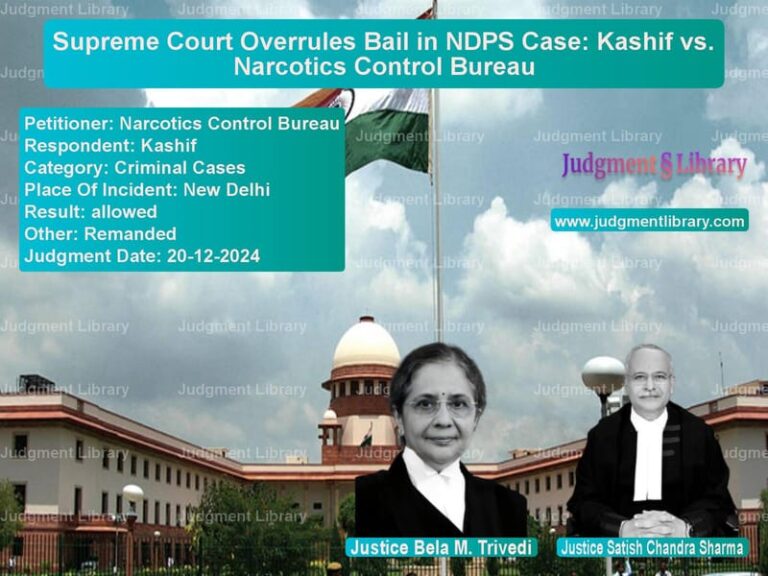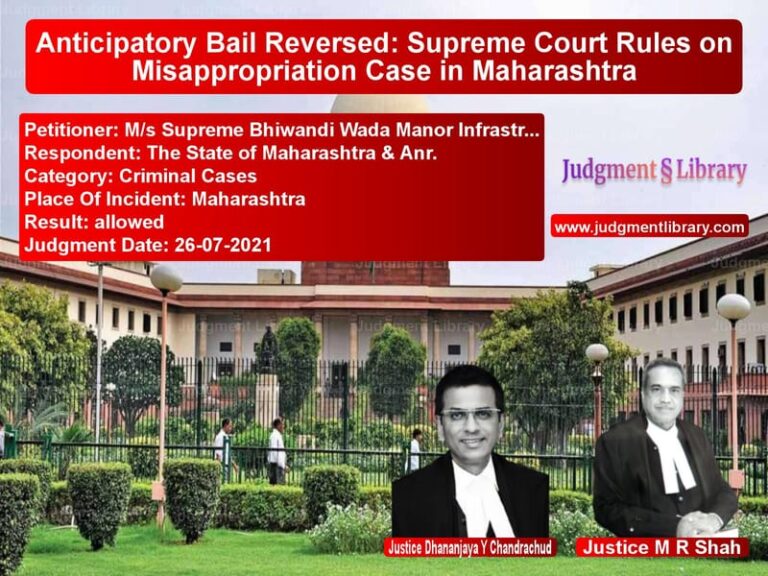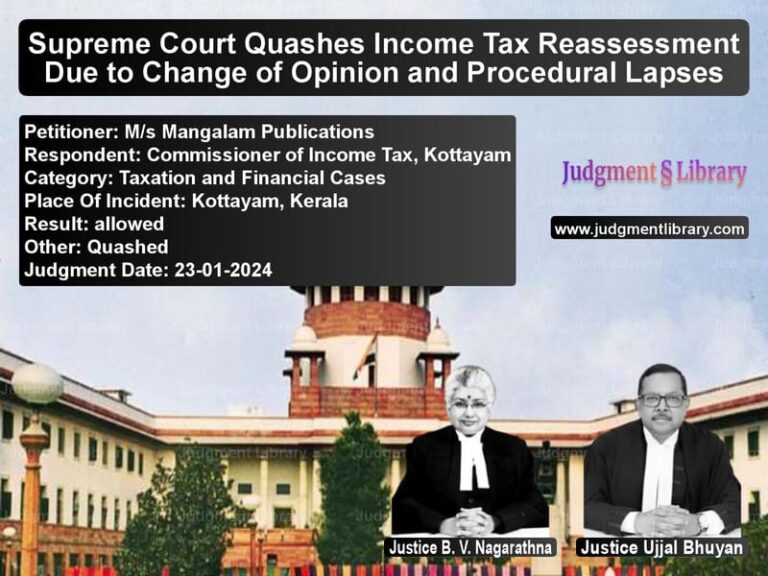Supreme Court Quashes FIR Against ‘College Romance’ Creators Under IT Act
The Supreme Court of India has ruled in favor of the creators of the web series ‘College Romance’ by quashing the FIR registered against them under the Information Technology Act, 2000. The Court clarified that profanity and vulgar language alone do not constitute obscenity under Sections 67 and 67A of the IT Act. This landmark decision reinforces the protection of artistic expression under the constitutional right to free speech.
Background of the Case
The case was filed against the actors, writers, and media company behind ‘College Romance,’ a popular youth-centric web series available on YouTube. The FIR, registered at PS Mukherjee Nagar, Delhi, was based on complaints alleging that the content of Season 1, Episode 5 contained excessive profanity and references to sexually explicit acts.
The complainant alleged that the series violated:
- Sections 67 and 67A of the IT Act (punishment for publishing or transmitting obscene and sexually explicit material in electronic form).
- Sections 292 and 294 of the IPC (related to obscene material and acts in public places).
- Sections 2(c) and 3 of the Indecent Representation of Women (Prohibition) Act, 1986.
Following the complaint, the Additional Chief Metropolitan Magistrate (ACMM) ordered the registration of an FIR. The accused challenged this in the Delhi High Court, but the High Court upheld the FIR, leading to an appeal before the Supreme Court.
Arguments by the Appellants (Creators of ‘College Romance’)
The legal team representing the appellants, including senior advocates Mukul Rohatgi, Harish Salve, and Madhavi Divan, argued that:
- The series depicted college life in an urban setting, and its use of profane language reflected contemporary youth culture.
- The scenes in question, when viewed in the full context of the series, were not obscene.
- Vulgarity and profane language alone do not qualify as obscenity under Section 67 of the IT Act.
- The content did not depict or transmit any sexually explicit act or conduct, making Section 67A inapplicable.
- The High Court failed to apply the established legal tests for obscenity, particularly the ‘community standard test.’
Arguments by the Respondents (State of Delhi and Complainant)
The State argued that:
- The series contained excessive use of offensive language, which was accessible to the general public, including minors.
- The language used was beyond socially acceptable standards and could corrupt impressionable minds.
- The lack of proper content classification and warnings made the content freely available to young audiences.
- The FIR was necessary to curb the spread of profane and obscene content on public platforms.
Supreme Court’s Observations and Judgment
1. Application of the Obscenity Test
The Supreme Court ruled that the legal test for obscenity, established in precedents like Aveek Sarkar v. State of West Bengal and Ranjit Udeshi v. State of Maharashtra, requires that content must:
- Be lascivious or appeal to prurient interests.
- Have a tendency to deprave or corrupt the viewer.
- Be judged in its entirety, not in isolation.
Applying this test, the Court held that the series did not meet the threshold for obscenity under Section 67 of the IT Act.
2. Profanity Is Not Equivalent to Obscenity
The Court noted that the use of swear words, even if excessive, does not automatically amount to obscenity. It ruled:
“The High Court failed to distinguish between profanity and obscenity. Profane language, by itself, is not sufficient to attract criminal liability under Section 67 of the IT Act.”
3. Section 67A Does Not Apply
The Court emphasized that Section 67A applies only to content that explicitly depicts or transmits sexually explicit acts. It ruled:
“No sexually explicit acts or conduct were portrayed in the series. Mere use of certain words with sexual connotations does not fall under the purview of Section 67A.”
4. Impact on Artistic Freedom and Digital Content
The Supreme Court acknowledged that digital platforms function differently from traditional broadcast media. It stated:
“Streaming platforms and online content operate in a ‘pull media’ environment where users have the choice to watch content. Unlike television or radio, where viewers may be subjected to content without choice, digital viewers opt in.”
5. Quashing the FIR
The Court set aside the High Court’s order and quashed the FIR, ruling:
“The FIR registered under Sections 67 and 67A of the IT Act against the appellants is quashed. No criminal offense is made out in this case.”
Implications of the Judgment
This judgment has significant implications for online content creators and media regulation:
- Clarifies obscenity laws: Reaffirms that profanity alone does not constitute obscenity.
- Limits misuse of IT Act: Ensures that online content creators are not subjected to unwarranted criminal prosecution.
- Protects digital content platforms: Reinforces that ‘pull media’ platforms provide users with greater control over content consumption.
- Strengthens artistic freedom: Ensures that creators are not penalized for language and themes reflective of real-life social interactions.
The ruling serves as a landmark precedent in preventing the misuse of obscenity laws to suppress free expression in digital content.
Petitioner Name: Apoorva Arora & Others.Respondent Name: State (Govt. of NCT of Delhi) & Anr..Judgment By: Justice A.S. Bopanna, Justice Pamidighantam Sri Narasimha.Place Of Incident: Delhi.Judgment Date: 19-03-2024.
Don’t miss out on the full details! Download the complete judgment in PDF format below and gain valuable insights instantly!
Download Judgment: apoorva-arora-&-othe-vs-state-(govt.-of-nct-supreme-court-of-india-judgment-dated-19-03-2024.pdf
Directly Download Judgment: Directly download this Judgment
See all petitions in Civil Defamation
See all petitions in Criminal Defamation
See all petitions in Judgment by A. S. Bopanna
See all petitions in Judgment by P.S. Narasimha
See all petitions in allowed
See all petitions in Quashed
See all petitions in supreme court of India judgments March 2024
See all petitions in 2024 judgments
See all posts in Defamation Cases Category
See all allowed petitions in Defamation Cases Category
See all Dismissed petitions in Defamation Cases Category
See all partially allowed petitions in Defamation Cases Category







